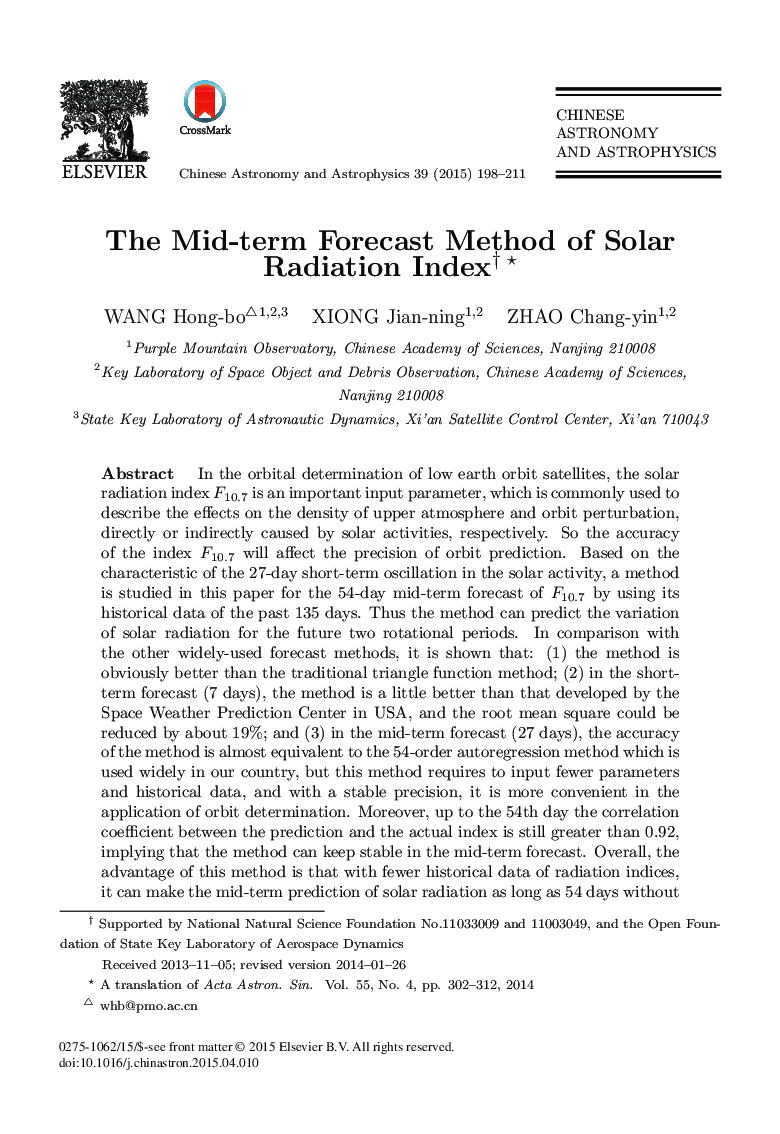| Article ID | Journal | Published Year | Pages | File Type |
|---|---|---|---|---|
| 1771792 | Chinese Astronomy and Astrophysics | 2015 | 14 Pages |
In the orbital determination of low earth orbit satellites, the solar radiation index F10.7 is an important input parameter, which is commonly used to describe the effects on the density of upper atmosphere and orbit perturbation, directly or indirectly caused by solar activities, respectively. So the accuracy of the index F10.7 will affect the precision of orbit prediction. Based on the characteristic of the 27-day short-term oscillation in the solar activity, a method is studied in this paper for the 54-day mid-term forecast of F10.7 by using its historical data of the past 135 days. Thus the method can predict the variation of solar radiation for the future two rotational periods. In comparison with the other widely-used forecast methods, it is shown that: (1) the method is obviously better than the traditional triangle function method; (2) in the short-term forecast (7 days), the method is a little better than that developed by the Space Weather Prediction Center in USA, and the root mean square could be reduced by about 19%; and (3) in the mid-term forecast (27 days), the accuracy of the method is almost equivalent to the 54-order autoregression method which is used widely in our country, but this method requires to input fewer parameters and historical data, and with a stable precision, it is more convenient in the application of orbit determination. Moreover, up to the 54th day the correlation coeffcient between the prediction and the actual index is still greater than 0.92, implying that the method can keep stable in the mid-term forecast. Overall, the advantage of this method is that with fewer historical data of radiation indices, it can make the mid-term prediction of solar radiation as long as 54 days without the need of extra solar observation data, to provide the reasonable and reliable solar radiation indices for the short- and mid-term orbit predictions in space flight missions.
